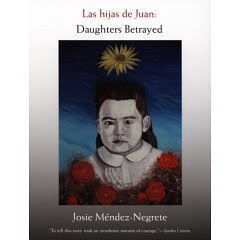Viewing: Blog Posts Tagged with: authoritycontrol, Most Recent at Top [Help]
Results 1 - 2 of 2
How to use this Page
You are viewing the most recent posts tagged with the words: authoritycontrol in the JacketFlap blog reader. What is a tag? Think of a tag as a keyword or category label. Tags can both help you find posts on JacketFlap.com as well as provide an easy way for you to "remember" and classify posts for later recall. Try adding a tag yourself by clicking "Add a tag" below a post's header. Scroll down through the list of Recent Posts in the left column and click on a post title that sounds interesting. You can view all posts from a specific blog by clicking the Blog name in the right column, or you can click a 'More Posts from this Blog' link in any individual post.
I’ve always thought that one of the troubles with librarianship was that there are always more great ideas and projects than anyone has time for or can get funding for. As a result we outsource projects to the people who have time and money and thus lose control over the end product. I have no idea if Library Thing’s open source Open Shelves Classification Project is going to wind up looking like a library product or a vendor product, but I’m curious to find out. As Tim Spalding says “You won’t be paid anything, but, hey, there’s probably a paper or two in it, right?” I haven’t seen much chatter, blog or otherwise, about this just yet but I’ll be keeping my eyes open. Whether or not this project it ultimately successful, I think it’s an interesting grass rootsy way of looking at ideas of authority and rejecting the top down let-us-have-you-contribute-and-then-sell-it-back-to-you models we’ve been working under.
By Guest Writer John Saunders
 Las hijas de Juan: Daughters Betrayed by Josie Mendez-Negrete. Duke University Press, 2006. 200 plus pages.
Las hijas de Juan: Daughters Betrayed by Josie Mendez-Negrete. Duke University Press, 2006. 200 plus pages.
Josie Mendez-Negrete tells the story of her mother and her sisters as well as her own story. She tells her story in a straightforward and deep fashion. Total and complete sincerity. She hates her father for what he has done. Josie's mother married at fifteen and came to live in the United States. Josie's father was a tyrant. He was also a drunk. He was a figure who wanted total and complete control over the women in his family. He was repeatedly guilty of incest with his daughters. One of the daughters became pregnant and gave birth to her father's child. Josie's mother seems to have been in a state of denial. For Josie school was a place where she could escape from her father. A family friend alerted the authorities as to what was going on in the family and the authorities got involved. The facts came out at the trial. How Josie and her sisters managed to survive in this abusive incestuous situation is beyond my comprehension. The fact that Mendez-Negrete was able to share her story is a service to all of us. If there are other incest stories out there as sincere and believable as this one ---- I would like to read them. Mendez-Negrete's writing skills are excellent. The story flows! It really does. This book is one that alerts us to what goes on in all cultures, I would suppose. It is a story that deals with one Hispanic family. Yet the story has a universal dimension to it. For some reason ---- Holocaust stories come to mind. Josie and her sisters suffered inhumane treatment at the hands of their father. Everything in the book rings true -- in my opinion. I recommend this book for teachers and for the general public (adult public, that is). A story well told. A topic that all of us need to be aware of ---- no matter who we are. Josie Mendez-Negrete is Associate Professor of Mexican American Studies in the Division of Bicultural-Bilingual Studies at the University of Texas, San Antonio.
 A Land So Strange: The Epic Journey of Cabeza de Vaca by Andres Resendez
A Land So Strange: The Epic Journey of Cabeza de Vaca by Andres Resendez
This is an amazing book that is packed with information and told in a manner that would interest the general public. It tells the reader much about the resilience of four Spaniards and one Moorish slave who wound up on the west coast of Florida when they had expected to settle in Mexico. Cabeza de Vaca and the slave Estebanico are the two principal characters in the narrative. What amazes is the fact that Cabeza de Vaca had respect for the Indian tribes and wanted all Spaniards to live in harmony with the Indians --- and not see them only as slaves. Of course Cabeza de Vaca was never able to convince the political powers to see the potential benefit of equality for Indian tribes. Cabeza de Vaca comes across as an admirable individual with englightened views. The three Spaniards and Estebanico survived years among the Indian tribes because they were seen by the Indians as healers. As the fine historian that he is ---- Resendez is able to flesh out the viewpoint of Indians as well as those of the three Spaniards and their Moorish companion. What amazes me is the economy of the book. Resendez sticks to basics. He places this saga in perspective. This is one of the finest books I have read concerning a neglected episode in the history of North America. Resendez is such an amazing teller of stories. Throughout the two hundred pages of this book I felt that I was right there living this story with the three Spaniards and Estebanico. I highly recommend this book. My guess is that if you read it ---- you will continue until you reach the final page. Many helpful footnotes as well as recommended reading. Andres Resendez is truly a master at his craft. He has a degree from El Colegio de Mexico and a Ph.D. in history from the University of Chicago. He is a member of the faculty at History Department, University of California at Davis.





[…] can read the rest of this blog post by going to the original source, here […]
If you want chatter look at autocat archives, as they have been talking non-stop about it.
And mostly with hostility. Meanwhile, on LibraryThing or, say, among the Open Library people, almost ever one is in favor of it. There’s some sort of sad lesson there. What you hear is too much about where you’re hanging out…
And there is another wonderful lesson in there, Tim. You need to completely define the problem you are trying to solve before you pose it.
And I say that out of love. Really.
Oh, that went through! Well, anyway, I’m glad to share more thoughts with you if you want to get a hold of me, Tim. (Passive-agressive, I know, but I’m doing 4 jobs at the present.)
Bullshit.
Wikipedia. PHP. Perl. Democracy.
Deschamps’s First Law of Innovation:
If an idea is on the right track, the problems will begin to proclaim their existence.
Deschamps’s Second Law of Innovation:
All problems are people problems.
Um, whoa. Thanks for working toward a consensus. Eek.
Sorry, but this carping is just pathetic. Yes I started a project without knowing fully what it was for and how it should work. I thought it might be useful to see what other people thought.
I’m not speaking of OSC. I’m speaking of LibraryThing, and it’s currently employing nine people—three of them librarians. We figured it out as we went along. And that was *good*.
You do NOT need to “completely define the problem you are trying to solve before you pose it.” That is an excuse to do nothing. It is, in a word, bullshit.
Tim, I’m not sure why you call my comment “carping”. Perhaps you’ve confused it with other comments you’ve read elsewhere.
My point is that your call for action confuses classification schemes, subject thesauri, and folksonomies. It’s not clear which you’re trying to build and they are distinctly different.
But calling another’s well-meant criticism “bullshit” won’t make you any friends. Good luck with the project.
Hey… Tim… ouch… these are people on your page. I had to say when I read it I thought, this is a fly-by idea. You have many of these and I don’t mind reading them; sometimes they’re quite interesting. But you’re lashing out at people who are now doing what you want them to do: turn the ideas over in their head, run ‘em up the flagpole and see who salutes ‘em, etc.
Karen,
The sentence I was responding to was: “You need to completely define the problem you are trying to solve before you pose it.”
It would follow that I should not have posed this topic—that I should have shut up and that asking people to develop an idea “in the open” shouldn’t be attempted. That is the opposite of running things up the flagpole, or turning ideas over, and therefore the opposite of both reasoned discussion and what libraries need.
Check out last night’s Uncontrolled Vocabulary for an ‘interview’ and discussion with Tim about the OSC - http://uncontrolledvocabulary.com/2008/07/09/uncontrolled-vocabulary-49-the-systems-can-be-gamed/
My general opinion - I love projects that develop organically like this. Experiment, explore, discuss, change things mid-stream until they work, then change them again when you discover another way they can work. It’s exciting and creative and will shake things up. Will it be a success? Dunno yet. But it will definitely be a fun trip!
So far, I’m enjoying the discussion, and learning a lot, in the group - http://www.librarything.com/groups/buildtheopenshelvesc#forums
Scot can speak for himself here, but I believe we have patched this over. Apparently I misunderstood what he was saying. Although I’m not quite sure how, I’m sure this was a misunderstanding.
I do apologize for the language. I have been getting it rather hard from various quarters. This would be fine if it were about ideas, but I am offended by constant necessity to imply I am an ignoramus—that I don’t know the difference between tagging and classification, and have never looked into the history of the field. Having spent two years obsessed with these issues, this line of attack just ticks me off. Good grief, I’ve personally interviewed the catalogers at the Athenaeum and Forbes Library, and a scholar of dead classifications, to understand the Cutter Classification better. Give me some credit, at least until there is some solid evidence.
I also liked the suggestion that I take the time to read David Weinberger The latter ticked me off something fierce. I not only had one of the first ARCs, but I’ve read it three times, have two separately underlined copies, ordered a case of the book and gave them out at librarians at conferences and have had extensive online and off with David. He even sent me draft articles to comment on.
But sometimes I should try humor instead of sleen. My wife suggested “I got his numbah. How do you like them apples?”
It seems to me that the ongoing RDA process (I almost said “death spiral”) is a fine example of what happens when you try to anticipate all of the implications of a major change before you start working on it. It satisfies neither traditionalists nor the Web 2.0 crowd, which probably means it qualifies as a successful negotiation…but doesn’t answer to anyone’s aspirations.